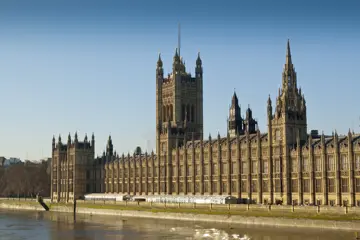We’re delighted that the Education Select Committee’s final report on children’s social care - published earlier this month- echoes the urgent changes we’ve been championing for foster care. Our close collaboration with the inquiry helped shape these vital recommendations.
Read on to discover the key findings and the major reforms for foster care the committee is urging the government to deliver.
The inquiry
The inquiry began in December 2023 to scrutinise the government’s implementation of the Independent Care Review and pace of change. It also followed increasing concerns over the rising numbers of children coming into care and children being placed out of area and in placements not appropriate to their needs. It was disbanded after the general election in May 2024 and reformed with a new committee in October 2024.
We submitted written evidence in December 2023 and in January 2024 and our CEO, Sarah Thomas gave oral evidence in April 2024 alongside Adoption UK and Kinship. Read about this here.
On 10 July 2025, the committee published its final report on the findings of the inquiry, which included a number of recommendations for the Department of Education (DfE) to consider.
The Fostering Network was mentioned 22 times throughout the report and several key recommendations that we have long championed and provided evidence for were included, such as a register for foster carers, more financial support and rolling out Mockingbird to every local authority.
Key findings from the inquiry
The inquiry found that the number of looked-after children has risen over 20 per cent in the last 10 years, reaching 83,630 in 2024. Population growth, increased numbers of unaccompanied asylum-seeking children, increase in complexity of children’s needs, children staying in care for longer and increasing family and neighborhood needs are all reasons cited for the rise.
A reduction in early intervention services was another key factor the report identified as contributing to the rise in numbers of children coming into care. Over the last decade, spending on preventive services fell from £3.9bn in 2012/13 to £2.7bn in 2022/23. The report urged the government to ensure that a significant majority of the new funding announced in the Spending Review is allocated to early intervention programmes.
The inquiry highlighted severe shortages of appropriate placements for children in care in both children’s homes and foster care, along with recruitment and retention difficulties. The report quoted our research, stating that around 6,500 additional fostering families are needed in England to meet the demand for more children coming into care.
However, there was some evidence there were enough placements across the country overall, but the challenges were finding appropriate placements to meet children’s needs in the right areas.
Their report therefore urged the government to adopt the following recommendations on foster care which we called for:
1. A national register for foster carers
The inquiry recommended a consultation into a national foster care register quoting our CEO’s oral evidence:
“There is a register for care workers; there is a register for youth workers; there are a number of different registers. That enables services to make sure that they can maintain quality, consistency, ensure learning and development remains of standard practice, give independence to foster carers, and ensure that they feel respected and valued as part of that team around the child. A register of foster carers would also enable local authorities to see where foster carers are, and where services are, and make sure that availability of foster carers was transparent, so that they could make the best, informed matches for children.”
Sarah Thomas, CEO, The Fostering Network
Over half of foster carers in our latest State of the Nations (SoTN) survey said they support proposals to create a national register.
2. Financial support given to foster carers
The inquiry also recommended a review into the financial support available to foster carers to ensure that it is adequate to meet their needs. The report cites our evidence about the role it plays in retention and the postcode lottery of fees revealed in our recent report on fees . Our State of the Nations report found a third of foster carers said their allowances do not cover the full cost of looking after a child and only a quarter of foster carers said they feel their fee is sufficient to cover their essential living costs.
3. Funding for Mockingbird constellations in every local authority
The inquiry recommended the funding of Mockingbird constellations in every local authority, mentioning our evidence which demonstrated that participation in Mockingbird constellations improves retention of foster carers and the wellbeing of care experienced children e.g. Mockingbird households were 82% less likely to de-register.
4. National strategy for foster care
Although we didn’t directly advocate for this, we welcome the recommendation to put in place a national fostering strategy, which complements the existing strategies for adoption and kinship care, to address the current recruitment and retention crisis in foster care. More foster carers continue leave the role than join, while the number of children coming into care has increased over the last decade. Therefore, a comprehensive foster care strategy and implementation plan is urgently needed. Next steps
We hope the government listens to the important recommendations set out in this report and agrees to urgently take them forward.
We look forward to working with the government on this. The Children’s Wellbeing Bill has been a missed opportunity to address some of the key challenges facing our fostering system and we hope the government will address this in its response to the report.
